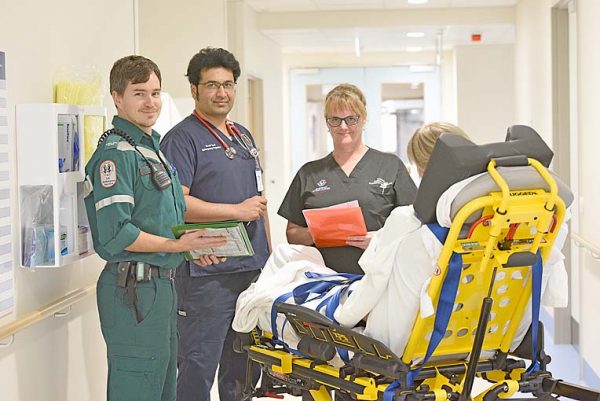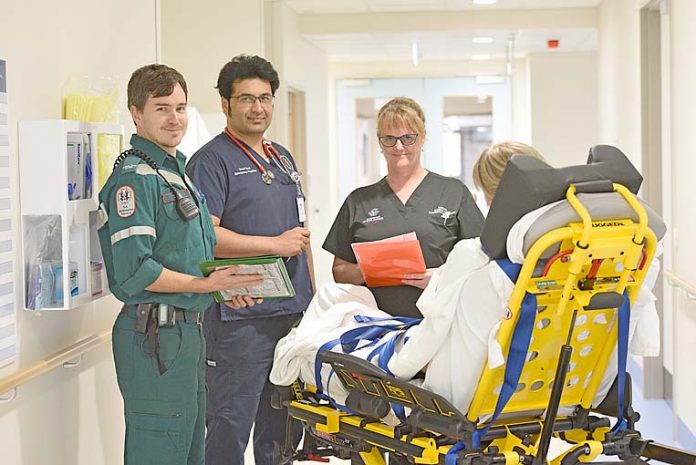
MOUNT Gambier and district residents who experience a stroke will have access to expanded after-hours clinical support at the city’s hospital, which has been described by leading medical specialists as a “game-changer”.
Neurologists at metropolitan stroke units will now support stroke patients at the state’s 61 country hospitals via phone and videoconference 24 hours a day.
The new system is expected to enable faster treatment and deliver more accurate decision making for stroke patients who seek help at regional health facilities.
Statistics show every 10 minutes someone will have a stroke in Australia and people living in regional centres are more likely to experience a stroke compared with their city-based counterparts.
“The neurologists will help country doctors quickly identify patients suitable for transfer to Adelaide or those who can receive their treatment close to home,” Country Health SA medical services executive director Dr Hendrika Meyer said.
“Commencing this after-hours neurology support is a real game changer for country stroke patients and I would like to thank Country Health SA and our metropolitan-based neurologists for working together to bring this about.”
The two main types of acute stroke treatment are thrombolytic therapy, which uses medication to break down clots and remove the blockage in blood flow to the brain, and endovascular thrombectomy – this involves surgery to remove the clot from the brain.
“Thrombolytic therapy has been available for suitable stroke patients at the three country stroke services – Mount Gambier Hospital, Whyalla Hospital and Riverland General Hospital – for several years, with the support of the metropolitan stroke units,” Dr Meyer said.
“Until now this service has only been offered during business hours, Monday to Friday, however with additional support from metropolitan neurologists, this will expand to 24 hours a day, seven days a week, which is a turning point for country stroke patients.”
City-based neurologist Associate Professor Tim Kleinig – who assesses country stroke patients and is the Royal Adelaide Hospital’s head of unit and clinical director stroke for Country Health SA – said the new model was especially important for those country hospitals where there were no CT facilities available.
“Being able to videoconference will allow the neurologist to remotely examine the patient to support the local care team in determining the best care pathway,” Assoc Prof Kleinig said.
“Depending on the patient’s symptoms and prognosis, we can provide support to the local care team to enable access to specialised stroke care closer to home or initiate the transfer of the patient to Adelaide, where they could undergo an endovascular thrombectomy at the RAH.”
Assoc Prof Kleinig reminded anyone who thought they may have experienced a stroke to call an ambulance and seek medical attention “immediately”.
“Think FAST – Face Arm Speech Time. Is there a droop of the face? Can both arms be held up straight? Is there trouble speaking or nonsense speech? If so, time is of the essence – call an ambulance immediately,” he said.
“Prompt access to specialist stroke care in either country South Australia or metropolitan Adelaide is essential to ensure strokes are adequately diagnosed and treated.”








